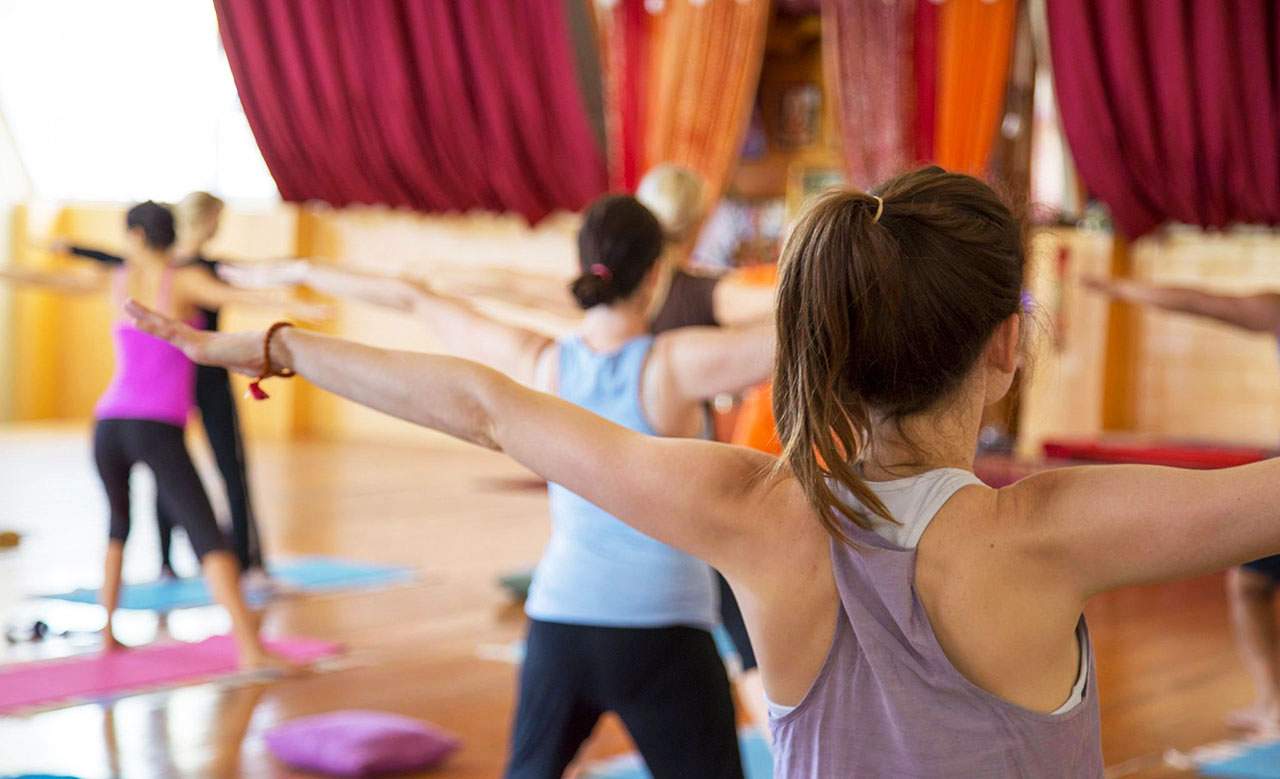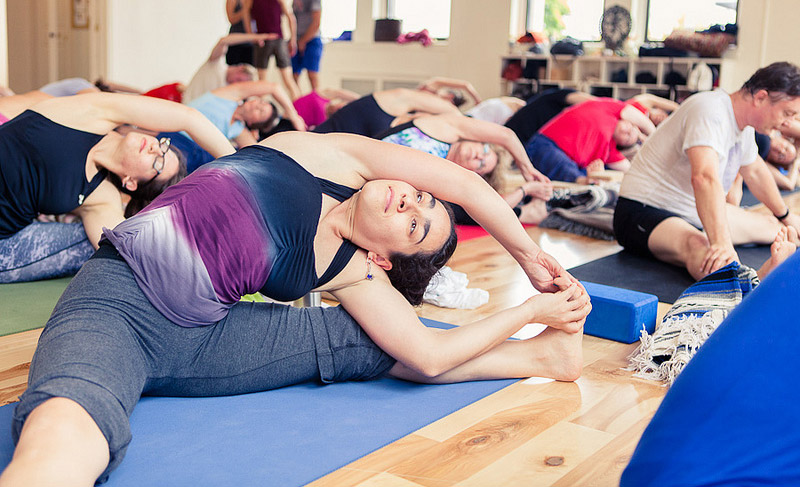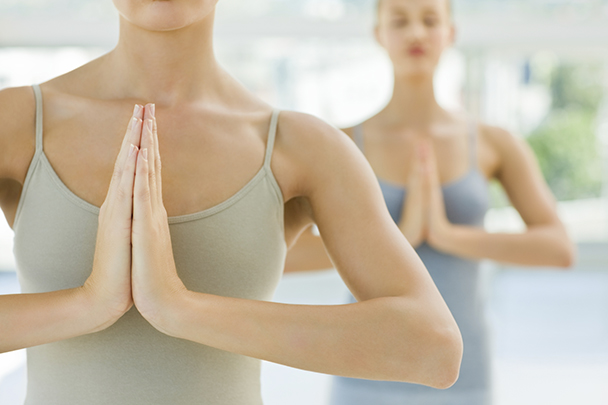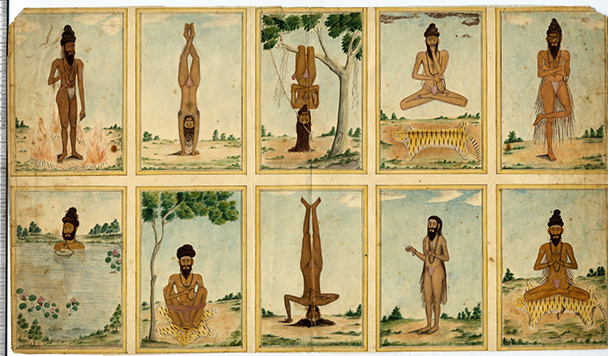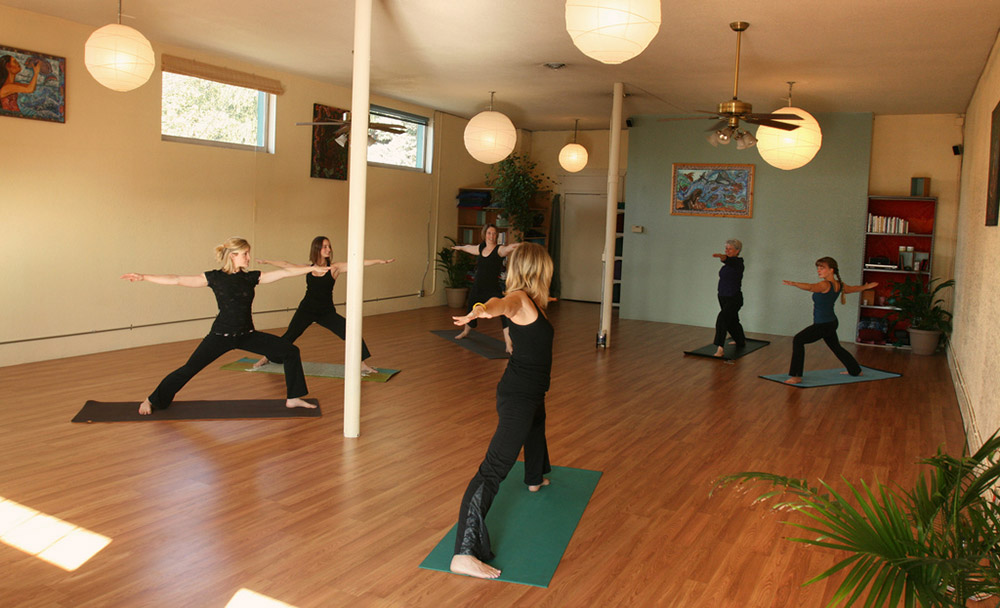The Bluffer’s Guide to Yoga
Navigate your way between sun salutations and savasanas, downward dog and Snoop Dogg.
Historically, there are many different yogic paths that emerged and influenced each other. ‘Yoga’ has changed over the centuries, and has many different techniques ascribed to it.
While in Western interpretations yoga has become an increasingly mainstream and consumerist form of exercise, the mental and spiritual benefits of yoga are just as, if not more significant, than the physical. A combination of asanas (physical poses) and pranayama (breath control), the actual word ‘yoga’ comes from the root yuj, which translates as “to yoke, to unite” with the divine.
Uniting with the divine is all well and good, but, let’s be honest, there’s probably some small part of you that secretly relishes the idea of having Jennifer Aniston arms or smugly crossing off the last session on your 30-day yoga challenge. I’m not judging you. Whatever your reason for pursuing yoga, we’re here to help you navigate the way between sun salutations and savasanas.

FIND YOUR FLOW
There are endless varieties of yoga to suit any number of different needs and intentions.
MEDIUM
Vinyasa yoga is a term that can cover a wide range of different yoga classes and is characterised by its dynamic flow transitions. Popular worldwide, it is relatively fast paced. Poses and sequences are connected by said vinyasa, which refers to a series of three poses — plank, chaturunga and upward facing dog.
While it may seem intimidating to be in a room full of people who don’t skip a beat when a teacher instructs them to be various types of animals (pigeon? cat? cow? lizard? dolphin?!?), there are generally newbies in every class with whom you can make frenzied eye contact while trying to figure out how one is supposed to get their legs to go that way.
Typically, these classes have a standing sequence and a floor sequence, followed by an inversion (varying degrees of upside down-ness) and finishing up with ‘savasana’ (if you are good at sleeping you will be wonderful at this).
My personal recommendation to bring along to a vinyasa class is a small towel for hand grippy purposes (clammy palms people, you get me), a water bottle and potentially a light drapey scarf with an exotic foreign pattern on it for savasana, when the body temperature drops and you may need a little cover-up.
photo credit: elidr via photopin cc

INTENSE
Adapted from traditional Hatha yoga in the early 1970s by Bikram Choudhury, Bikram yoga follows the same 26 poses and two breathing exercises for 90 minutes, in a room heated to approximately 40 degrees Celsius. It’s specifically designed for its detoxifying and rejuvenating purposes, while increasing flexibility and total body strength.
While initially I thought my yoga teacher was some sort of sociopath for kindly (but firmly) encouraging me to stay in the class for the full 90 minutes, adjusting to the heat is an important part of your beautiful Bikram journey*. There’s some sort of sick, addictive pleasure in making it through a full class, and it only gets easier every time you go.
For your first Bikram yoga class, bring a towel or two — one to absorb the ocean of sweat that your body will expel, and the other to shower with at the end of class (highly recommended). Also bring a giant bottle of water. Take small sips during the class and drink the hell out of it afterwards.
*That being said, listen to your body. If something is just not okay, you didn’t lose at yoga! Stand your ground and get the hell outta there.
Image: chantel beam photography via photopin cc

MODERN
I’m a pretty big fan of the incense, shrines and chanting music variety of yoga, so I was a little cautious about the new phenomenon to hit our fair shores, Hip Hop Yoga. However, the combination of my great loves for both downward dog and Snoop Dogg resulted in a wonderfully unique flow that was uplifting in a totally different way.
Hip Hop Yoga is exactly what it sounds like — a vinyasa flow style of yoga set to hip hop music in various degrees of intensity. While it bears similarity to more traditional styles in terms of poses and breath control, Hip Hop Yoga stands as its own kind of practice, more like a choreographed combination of dance and yoga. You’re not quite pop, lock and dropping that booty, but there’s no group chanting or gentle gong beating either.
photo credit: TinyTall via photopin cc

WHAT TO EXPECT
Expect to feel welcome. Despite the notion of an exclusive yoga culture that both intimidates and entices newbies, you should feel comfortable at any yoga studio. Sharing the practice and community with everyone is what yoga is all about! Bow down to the joys of yoga!
Expect not to be able to do everything. If you haven’t practiced before, expect poses to feel unfamiliar and potentially uncomfortable. While you are probably very good at sitting on chairs, walking up stairs and going to get coffee, our Western bodies are not accustomed to things like balancing on one leg, being upside down or standing on our heads. Be mindful of this and know that you did not lose at yoga just because you face planted while attempting crow pose.
Expect to be jealous of the girl who drifts into class with an exotic scarf from a small village in India and can hold a five-minute headstand with ease. There will be one in every class and it will not be you. Be okay with that.
Expect to say 'namaste'. It might feel a little cheesy and unnatural at first, but it’s how you will end every single yoga class you ever take.
Don’t be alarmed if at some point in the class people start chanting OM. Despite what it may sound like at first, you are not being indoctrinated and this is not a cult. Just go with it.

FROM DRISHTIS TO DOWNWARD DOG(G)S
Drishti The eyes' focus point during poses, intended to keep the mind from drifting and keep you awareness inward.
Downward Dog Perhaps the most frequently visited yoga pose, Downward-Facing Dog is achieved by placing the hands and feet on the floor and lifting the hips upwards to form an upside down V with the body. A traditional pose in sun salutation sequences, this pose in often used to warm up initially and reset in between sequences.
Vinyasa Poses linked with breath and connected together to form a ‘flow’.
Chakra The seven centres of energy or spiritual power within the bodies. These can relate to different emotional issues.
Namaste This has a variety of different specific translations, but ultimately is an expression of gratitude acknowledgement to a divine power or presence, something greater than ourselves. Can loosely be interpreted as, “The spirit in me acknowledges the spirit in you”.
Savasana A pose of total relaxation taken at the end of practice, or sometimes at intervals during.
Chaturanga Going through a sequence of plank, chaturanga (which is kind of like the downwards part of a push up) and upward dog or cobra. This is taken in between vinyasa flow sequences.
Asana The various physical postures and poses in yoga.
Pranayama The flow of breath or breath control in yoga.
Ujjayi breath A type of yogic breathing that is made by gently constricting the base of the throat, filling the belly first, then upper rib cage and throat, making an oceanic sound.

WHERE TO PRACTICE
Yoga Village in Potts Point offers 25 classes a week with a range of practices from low intensity to more advanced. Focusing on teaching students the philosophy of yoga, Jivamukti Yoga in Newtown is as much about education as it is about meditation.
If the price of yoga classes is keeping you away, BodyMindLife located in Surry Hills and Bondi offers a $48 30-day beginners pass. Barefoot Yoga in Paddington is completely donation based, meaning you pay what you can for each class.
Bikram Yoga focuses on Vinyasa practices at 40 degrees while Hom Yoga specialises in a variety of hot yoga classes, from Ashtanga to Vinyasa. Both are located in Darlinghurst. Hip Hop yogis can practice at Yoga 213 in Bondi, whose owner Sammy Veall brought the practice to Australia.
photo credit: TinyTall via photopin cc

Top image: Kris Krug via photopin cc
